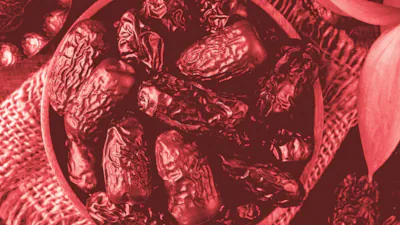This week’s Arabic word of the week is one deeply rooted in the Abrahamic faiths. Mosa is a male name with a rich history that is still used today, not only in the Arab region but around the world in various forms.
It also has slightly different pronunciations depending on language and dialect – such as Musa, Mossa and Moussa. However, the most common pronunciation in Arabic is Mosa, while in English it's Moses and in Hebrew, Moshe.
The name has several meanings in different languages, all of them in some form connected to the story of the prophet Moses, a significant figure in Islam, Christianity and Judaism.
Mosa has Semitic origins and is closely related to the Hebrew name Moshe, which can mean something that is drawn out or delivered. There is also another meaning in Hebrew, which means he who is saved.
While the origin of the name is widely accepted as Hebrew, there is some debate that Moshe or Mosa comes from an ancient Egyptian language. Some researchers have suggested that it’s a combination of two words: mo, which means water, and sha, which means tree. Others believe it is derived from the Egyptian word for son. However, none of these theories have been confirmed by linguists.
Across the Abrahamic religions, the name Mosa refers to the prophet known as Moses in English. The name and his story is one that symbolises leadership, deliverance and moral fortitude.
In Arabic and Islamic traditions specifically, Mosa has several meanings including, the boy, graceful, prophet or taken from the water. The latter meaning comes from the story of Mosa in Islam where he is a prophet, messenger, lawgiver and a leader sent by God to guide the Jewish people out of slavery.
It is the story of when the pharaoh of Egypt ordered the killing of all male children of the Israelites. Mosa's mother placed baby Mosa in a basket in the River Nile where the pharaoh's wife, Asiya, found and adopted him.
When Moses reached adulthood and left Egypt, he was eventually granted prophethood when God commanded him to return to Egypt to free the Jewish people. After plenty of strife, challenges and plagues sent by God, Moses led the Jewish people out of Egypt. The Quran and other religious texts all recount the miraculous parting of the sea where Moses led his people to freedom.
Mosa is mentioned more than any other individual in the Quran, 136 times. His life has been narrated and recounted more than of any other prophets in the Quran and his story holds themes of faith, perseverance and trust in God’s plan.

















